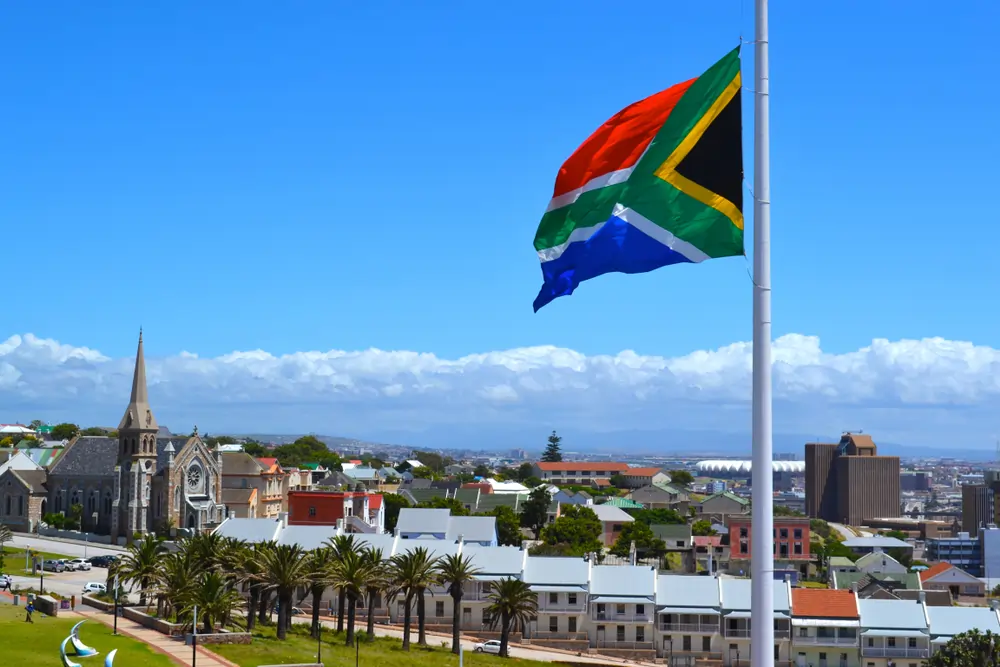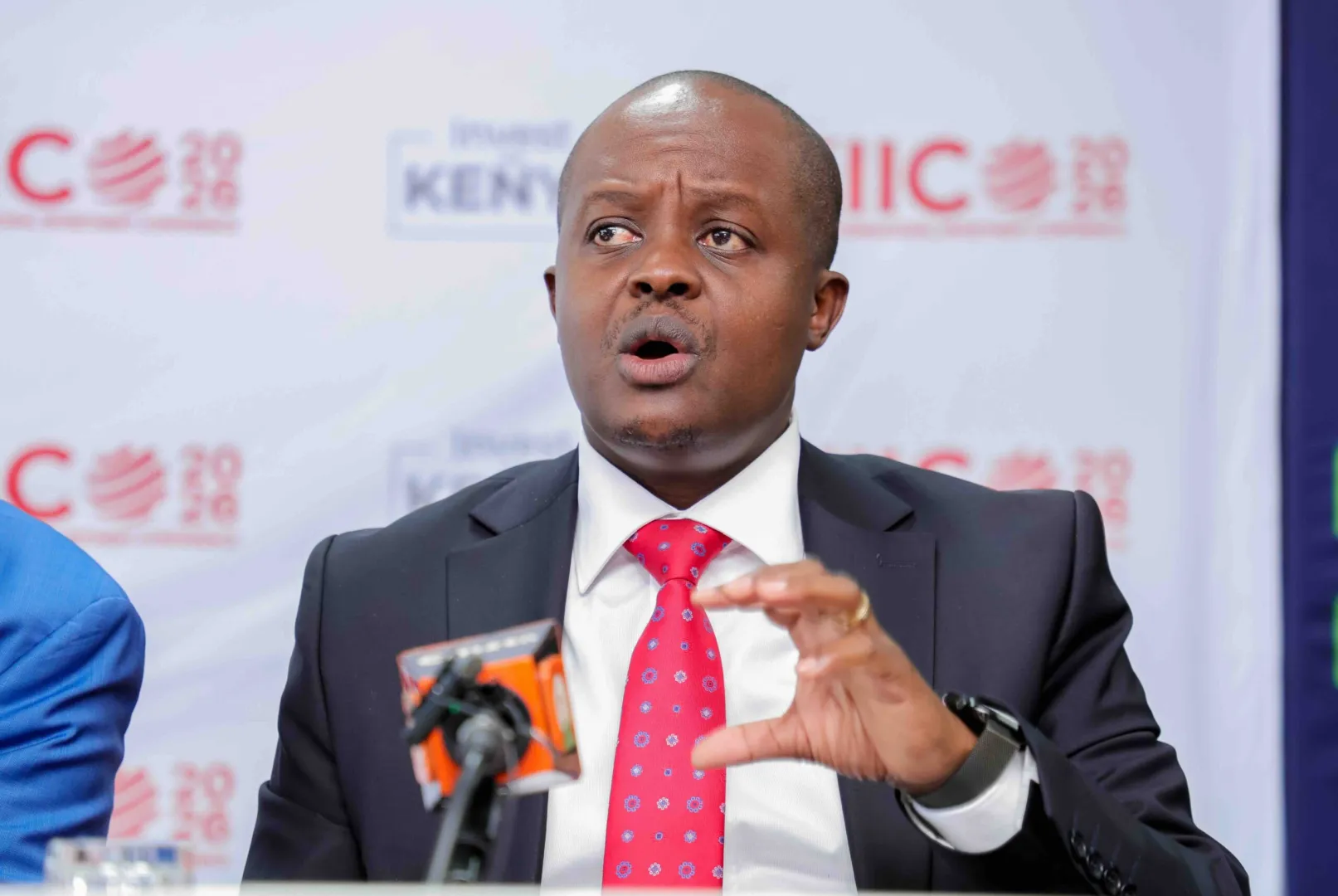South African President Cyril Ramaphosa announced the government’s firm commitment to significantly increase infrastructure investment in the country, a move that is crucial to spurring economic growth, improving service delivery, and creating jobs. Speaking at the National Council of Provinces (NCOP) in Cape Town on September 12, 2024, Ramaphosa emphasized that the expansion of public infrastructure is critical to addressing many of the socio-economic challenges South Africa faces today.
Infrastructure Investment as a Driver of Economic Growth
Infrastructure development is widely recognized as one of the key pillars for fostering long-term economic growth. Ramaphosa highlighted that South Africa’s efforts would focus on transforming the country into a “building site,” underscoring the importance of infrastructure in creating an enabling environment for businesses, improving the quality of life for citizens, and ensuring the provision of essential services such as transportation, energy, and healthcare. These improvements are particularly essential given South Africa’s ongoing struggles with high unemployment rates, poverty, and inequality.
According to Ramaphosa, a more substantial and efficient investment in infrastructure will help stimulate the South African economy, which has faced slow growth and stagnation in recent years. In fact, the government aims to use infrastructure development as a tool to address the country’s structural economic challenges, particularly its high unemployment rate, which stands at around 32.6% as of the second quarter of 2024.
The focus on infrastructure development is part of South Africa’s broader economic recovery plan. By investing in critical infrastructure, the government aims to create job opportunities and attract both domestic and foreign investment. The administration’s emphasis on infrastructure also aligns with global best practices, as many countries invest heavily in public works as a means to stimulate their economies, especially in times of economic downturn or recession.
Addressing Delayed and Abandoned Projects
One of the key challenges South Africa has faced in recent years is the delay and abandonment of public infrastructure projects. Ramaphosa acknowledged this issue during his speech, noting that incomplete and abandoned projects hinder economic development and prevent communities from accessing essential services such as water, electricity, and sanitation. For instance, many rural areas in South Africa continue to face water shortages and inadequate healthcare facilities due to these incomplete projects.
To address this, the Department of Public Works and Infrastructure (DPWI) has initiated the process of identifying delayed or abandoned projects within its portfolio. This is a crucial step in ensuring that the allocated funds for these projects are used efficiently and that the infrastructure projects are completed in a timely manner.
By focusing on improving the delivery of existing projects, the government aims to restore public trust and confidence in its ability to manage large-scale infrastructure projects. Ramaphosa emphasized that his administration will ensure that these issues are resolved across all provinces, not just in major metropolitan areas like Johannesburg and Cape Town but also in underdeveloped rural regions.
The National Infrastructure Plan 2050 and Key Pillars for Investment
Ramaphosa also outlined key reforms and institutional arrangements that will guide the government’s infrastructure investment process under the National Infrastructure Plan 2050 (NIP 2050). The NIP 2050 is a long-term strategic framework that outlines the government’s vision for infrastructure development over the next three decades. It focuses on ensuring that South Africa’s infrastructure network meets the needs of its growing population while also supporting sustainable economic growth.
Some of the key pillars of this plan include better preparation and prioritization of infrastructure projects, multi-year budgeting for planning and delivery, and reforms to speed up the permitting and approval processes. These measures are designed to address some of the longstanding bottlenecks in South Africa’s infrastructure development process, which has been plagued by inefficiencies, corruption, and bureaucratic delays.
For example, many large infrastructure projects in the past have faced significant delays due to the slow approval process for environmental permits, which are often required before construction can begin. By streamlining these processes, the government hopes to attract more private sector investment and expedite the construction of critical infrastructure projects such as highways, railways, and energy plants.
Funding and Investment Partnerships
Infrastructure development requires substantial capital, and the South African government has recognized the need for innovative funding solutions. One of the ways to achieve this is through public-private partnerships (PPPs), where the government collaborates with private companies to finance and manage infrastructure projects. The use of PPPs has been successful in other countries, including Brazil and India, where private companies are given the opportunity to invest in public infrastructure in exchange for long-term returns on their investment.
South Africa’s infrastructure investment drive also comes at a time when international investors are increasingly looking at emerging markets for investment opportunities. By creating a more business-friendly environment and focusing on improving its infrastructure, South Africa aims to position itself as a more attractive destination for foreign investment, particularly in sectors such as renewable energy, telecommunications, and transportation.
Job Creation and Economic Impact
One of the most significant benefits of increased infrastructure investment is job creation. According to President Ramaphosa, the government’s ambitious infrastructure development plans will help create thousands of jobs, both directly and indirectly. Infrastructure projects require a wide range of skills, from engineering and construction to maintenance and operations. In addition, these projects often have a ripple effect on the economy, creating jobs in related industries such as manufacturing, transportation, and logistics.
The government’s infrastructure investment is also expected to stimulate local economies by providing opportunities for small and medium-sized enterprises (SMEs). Many of these projects will require materials and services from local suppliers, helping to boost demand for goods and services in the construction and related industries.
Challenges and Risks
Despite the positive outlook, there are several challenges that the South African government will need to address to ensure the success of its infrastructure investment plans. One of the biggest challenges is corruption. In recent years, South Africa has been plagued by corruption scandals, particularly in the construction and infrastructure sectors. These scandals have eroded public trust in the government’s ability to manage large-scale projects and have led to significant cost overruns and delays.
To address this issue, the government has pledged to implement stronger oversight and accountability measures to prevent corruption and ensure that infrastructure projects are delivered on time and within budget. This includes enhancing the capacity of government institutions to monitor and manage public funds effectively.
Another challenge is the country’s energy crisis. South Africa has been facing rolling blackouts (also known as load shedding) due to the inability of the state-owned power utility, Eskom, to meet the country’s energy demand. This has had a significant impact on businesses and the economy as a whole, with many companies being forced to scale back their operations or invest in costly backup power solutions. If not addressed, the energy crisis could hinder the government’s infrastructure development plans, as many of the planned projects will require a reliable and stable energy supply.
Conclusion
President Cyril Ramaphosa’s announcement of the government’s commitment to massively increase infrastructure investment in South Africa represents a significant step toward addressing the country’s economic challenges. By focusing on completing delayed and abandoned projects, implementing reforms to streamline the infrastructure development process, and attracting both domestic and foreign investment, the government aims to create jobs, stimulate economic growth, and improve service delivery to communities across the country.
However, to achieve these goals, the government will need to address the challenges of corruption, bureaucratic inefficiencies, and the ongoing energy crisis. With the right policies and oversight in place, South Africa has the potential to become a leader in infrastructure development on the African continent, driving economic growth and improving the quality of life for its citizens.
photo source: Google
By: Montel Kamau
Serrari Financial Analyst
13th August, 2024
Article, Financial and News Disclaimer
The Value of a Financial Advisor
While this article offers valuable insights, it is essential to recognize that personal finance can be highly complex and unique to each individual. A financial advisor provides professional expertise and personalized guidance to help you make well-informed decisions tailored to your specific circumstances and goals.
Beyond offering knowledge, a financial advisor serves as a trusted partner to help you stay disciplined, avoid common pitfalls, and remain focused on your long-term objectives. Their perspective and experience can complement your own efforts, enhancing your financial well-being and ensuring a more confident approach to managing your finances.
Disclaimer: This article is for informational purposes only and does not constitute financial advice. Readers are encouraged to consult a licensed financial advisor to obtain guidance specific to their financial situation.
Article and News Disclaimer
The information provided on www.serrarigroup.com is for general informational purposes only. While we strive to keep the information up to date and accurate, we make no representations or warranties of any kind, express or implied, about the completeness, accuracy, reliability, suitability, or availability with respect to the website or the information, products, services, or related graphics contained on the website for any purpose. Any reliance you place on such information is therefore strictly at your own risk.
www.serrarigroup.com is not responsible for any errors or omissions, or for the results obtained from the use of this information. All information on the website is provided on an as-is basis, with no guarantee of completeness, accuracy, timeliness, or of the results obtained from the use of this information, and without warranty of any kind, express or implied, including but not limited to warranties of performance, merchantability, and fitness for a particular purpose.
In no event will www.serrarigroup.com be liable to you or anyone else for any decision made or action taken in reliance on the information provided on the website or for any consequential, special, or similar damages, even if advised of the possibility of such damages.
The articles, news, and information presented on www.serrarigroup.com reflect the opinions of the respective authors and contributors and do not necessarily represent the views of the website or its management. Any views or opinions expressed are solely those of the individual authors and do not represent the website's views or opinions as a whole.
The content on www.serrarigroup.com may include links to external websites, which are provided for convenience and informational purposes only. We have no control over the nature, content, and availability of those sites. The inclusion of any links does not necessarily imply a recommendation or endorsement of the views expressed within them.
Every effort is made to keep the website up and running smoothly. However, www.serrarigroup.com takes no responsibility for, and will not be liable for, the website being temporarily unavailable due to technical issues beyond our control.
Please note that laws, regulations, and information can change rapidly, and we advise you to conduct further research and seek professional advice when necessary.
By using www.serrarigroup.com, you agree to this disclaimer and its terms. If you do not agree with this disclaimer, please do not use the website.
www.serrarigroup.com, reserves the right to update, modify, or remove any part of this disclaimer without prior notice. It is your responsibility to review this disclaimer periodically for changes.
Serrari Group 2025
















